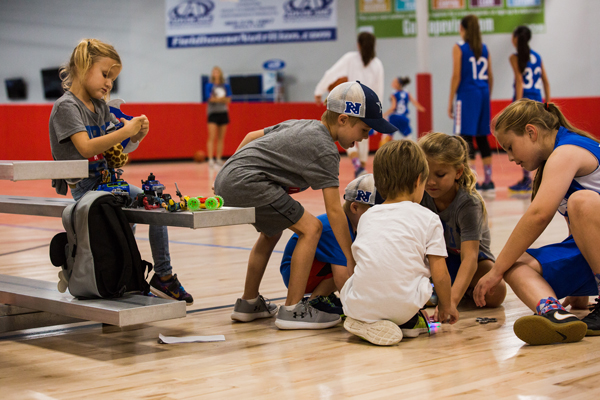TTH Players and Families-
Winter season has concluded and we are now entering into a much needed break for your athlete. We want you to understand the why behind our schedule. This break is designed to give players a physical and mental break (with the perk of helping parents feel less like an Uber).
PSYCHOLOGICALLY RECHARGE
USA Basketball recommends the following:
“Ensure rest from organized basketball at least one day per week and extended time away from organized basketball each year. Daily rest is important for injury prevention, sport development and overall health. Rest days should be taken each week, and extended time off should be taken each year for physical recovery as well as to recharge oneself psychologically. Such an approach helps to maintain motivation for continued participation.”
REST IS A GOOD THING FOR OUR BODIES
It is not always easy to pause and slow down, but we would like to encourage your athlete to take some time off. While this may seem counterintuitive in the world of youth sports, we have read enough and care enough about our players to schedule this time off.
Here is one quote from this article:
“The only age group that logs the hours and wear and tear on their bodies is this age group and younger. College athletes and professional athletes have an off-season to recover and develop, but not this age group,” said Midlothian coach Amy Tennison, who lost leading scorer Kierra Middleton (was averaging 26.3 points per game) to a torn ACL in the fourth game of the season.
WORK SMARTER AND AVOID GOING THROUGH THE MOTIONS
https://www.si.com/edge/2017/06/07/peak-performance-book-extended-breaks-rest-workouts
Here is one quote from this article:
When asked if you have taken time off…
For the vast majority of Americans the answer to both of those questions is no. We consistently work on weekends and rarely use all our paid time off, let alone take extended vacations. Instead, we get trapped into thinking that if we’re not always working hard, we’ll be surpassed by the competition. Our misguided thinking is the result of years of conditioning. We (i.e., Brad and Steve) both remember growing up to the tune of popular inspirational quotes like, “When you are not practicing, remember somewhere someone else is, and if you meet him, he will win.” Unfortunately, we’ve lost the notion of smart work at the expense of hard work, which somehow almost always gets confused with more work.
But here’s the thing: If we never take “easy” periods, we are never able to go full throttle and the “hard” periods end up being not that hard at all. We get stuck in a gray zone, never really stressing ourselves but never really resting either. This vicious cycle is often referred to by a much less vicious name—“going through the motions”—but it’s a huge problem nonetheless. That’s because few people grow when they are going through the motions. In order to give it our all, and do so over a long time horizon without burning out, we’ve got to be more like Bernard Lagat: Every now and then, we’ve got to take it really easy.
REST PHASE
We are in a scheduled “Long Term Recovery” which is a built in rest period in a seasonal training schedule. As coaches, we will be working behind the scenes, on practice planning, offense and defense schemes, continuing our education by watching and studying the game. We will be out in the communities watching local high schools compete.
OTHER WAYS ATHLETES CAN GROW
Our athletes can continue to be a student of the game:
Watching college and professional basketball
Watching Hudl and their own games
Attending High School playoff games
Reading books about basketball
Reading books that are recommended for athletes
Playing pick up in their neighborhood or local rec center
Attend high school practice
Studying the “game” of player that they admire


Leave a reply